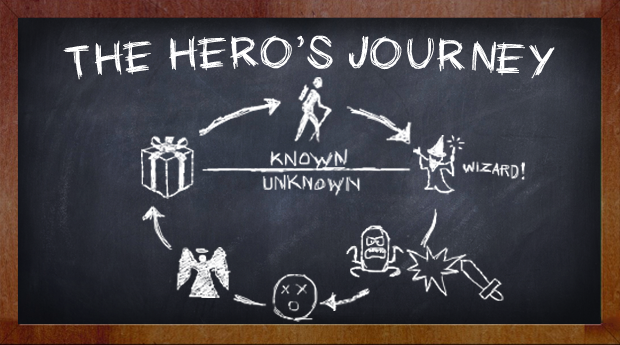Criticism and the Creative Mind

We live in a content-driven world.
Not a second goes by where we’re not hammered with Buzzfeed articles and gif sites and blogs and articles. We have access to 300-some cable channels, not including what you can get with a Hulu or Netflix subscription. Then there’s a billion-plus YouTube videos, along with original sketches on sites like CollegeHumor. There’s magazines and books and newspapers – almost all of which are available in digital, on-demand form. There’s theater movies. There’s Red Box rentals. There are apps that give you instant access to nearly any song ever recorded, along with podcasts, interviews, and audio books. There’s traditional radio. Satellite radio. And we haven’t even touched on display ads, billboards, television commercials, or other more interactive marketing experiences.
There’s almost no limit to the scope of the content you can consume at any given moment. So, while it’s become much easier to create content, it has become exponentially more difficult to truly captivate an audience. The number of hours in a day hasn’t changed, just the number of options. Authors aren’t just competing with the other books on the shelf anymore – they’re fighting their ass off to get people to read a book at all, let alone read theirs. It’s effing hard to create content that resonates with people in the digital age. It’s really, really hard.
Can the Windows Phone Make Microsoft Relevant Again?

There comes a time in every brand’s life when it must either adapt to new challenges in the marketplace, or risk fading away altogether. In the digital age, that leaves many brands scrambling to amplify their mobile presence in a last ditch effort to stay relevant. And why wouldn’t they? Apple’s iPhone and Google’s Android OS launched both tech giants, respectively, into new stratospheres upon their release, and now Microsoft is hoping to achieve the same success with its up-start Windows phone.
Corporate Catfishing: How Brands Exaggerate, Bend the Truth & Flat Out Lie to Consumers

People have been lying to each other for thousands and thousands of years—before we could speak words to each other, even.
But, “A-ooga, a-ooga!” you say.
You really expect me to believe that?
The problem is that lying for kids today is so damn easy, what with all the social media and whatnot. I remember when you used to have to actually look someone in the eyes when you lied to them (uphill both ways!). It used to take serious stones to purposefully deceive someone, especially someone you cared about.
Not anymore! Nowadays it takes a computer savvy fibber about 5 minutes to fabricate an entire online identity, through which they can spew falsehoods toward anyone who will hear them with very little risk of discovery or backlash. It’s become so easy, in fact, to ensnare people in romantic trysts with your online alter ego that it almost seems crazy NOT to.
It’s called Catfishing, and now it’s not just antisocial weirdos who are creating digital personas in an attempt to lure in people who would otherwise never associate with them. Brands and businesses are joining in on the fun.
How? Read on.
Signing Tebow: Brilliant Marketing Move or Bad Football Decision?

Everyone wants to know what’s next for the ever-divisive Tim Tebow, who is now a free-agent after a disappointing and drama-filled season with the New York Jets. It seems like just yesterday that Tebow was launching an overtime touchdown pass to Demaryius Thomas to beat the Steelers in the 2011 Wild Card playoff game. Now the poor guy can’t buy a roster spot.
Some say he’ll be scooped up by an NFL team before training camp. Others expect him to take a job in the CFL or Arena League or leave football behind all together and pursue a career with the church. As of this writing, Tebow remains in limbo while media around the country speculate as to whether their local teams should sign him.
Crash Course in Storytelling
How many awful commercials do you see where a group of ethnically diverse “friends” is standing around a party having some wooden, unbelievable discussion about the benefits of Product X?
You probably can’t remember because a) there are so many of them and b) they’re all so, so forgettable.
It’s a shame, because even if a company doesn’t have the budget of a Google or a Red Bull, that doesn’t excuse them for not trying. A great commercial script is free.
Story is free.
See, marketing is storytelling at its core. It’s taking a reader or a user or a viewer on a journey—one that identifies a problem in his or her life and offers a helpful solution. Great marketing evokes an emotional response in people and makes them connect with your brand in a profound way. Funneling your traditional ad copy through bargain bin actors isn’t story. It’s not compelling, and it’s not effective.
That said, how many marketers do you think really put in the effort to understand story?
